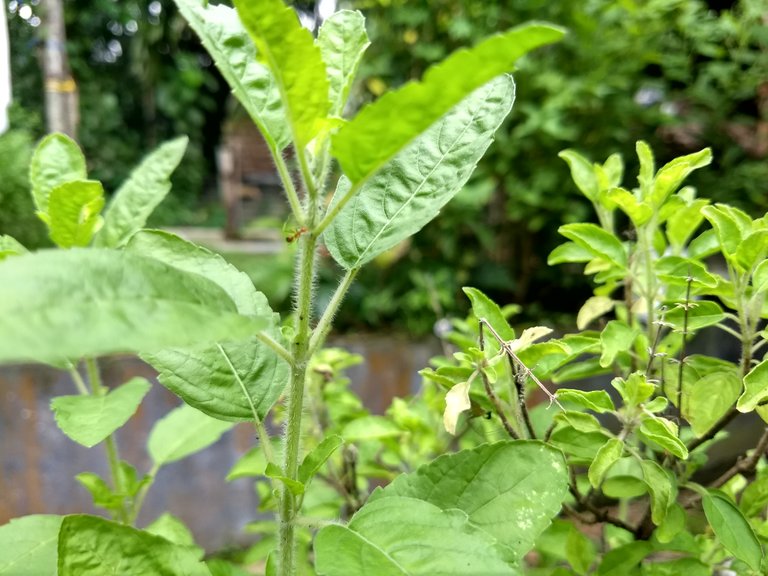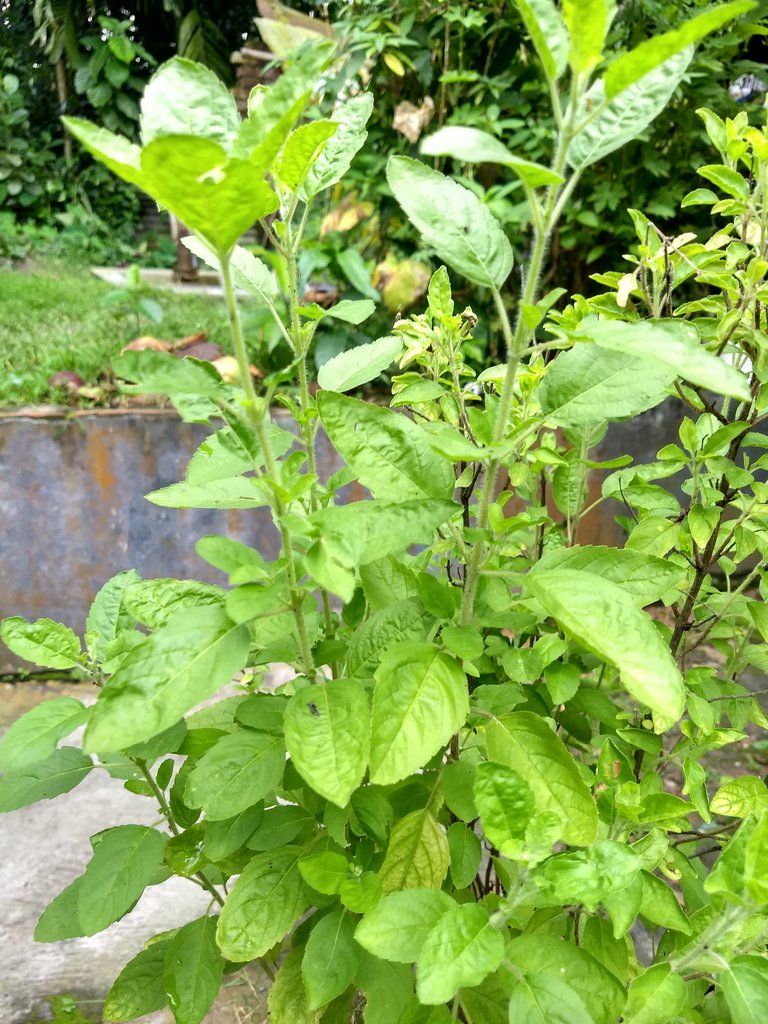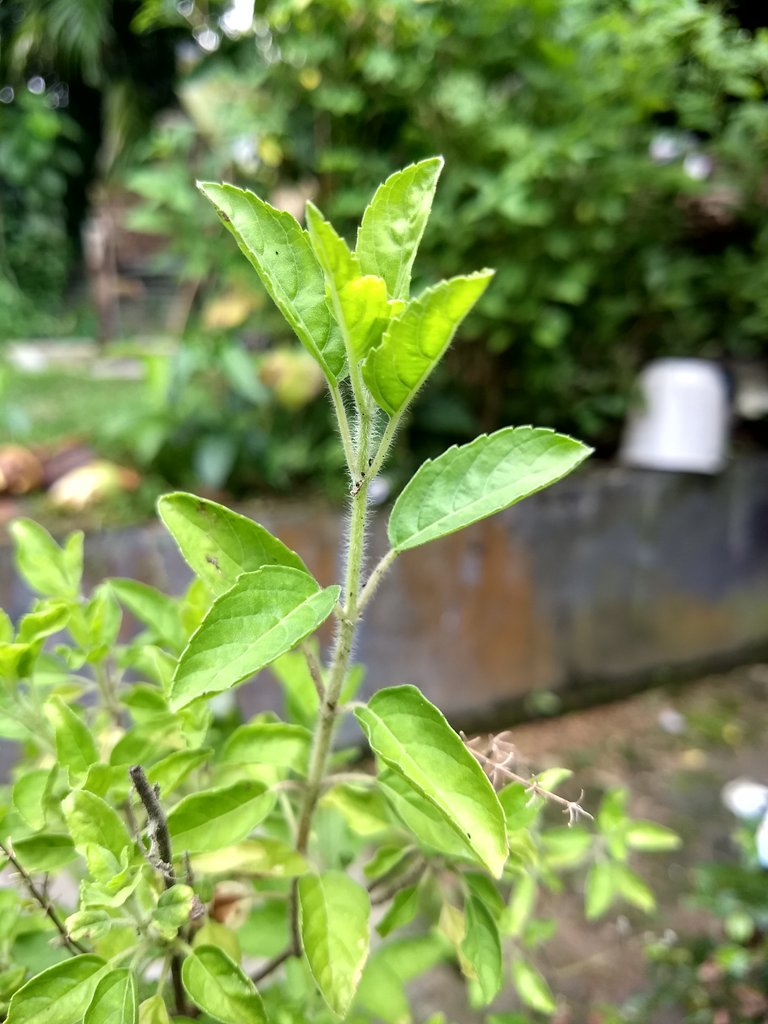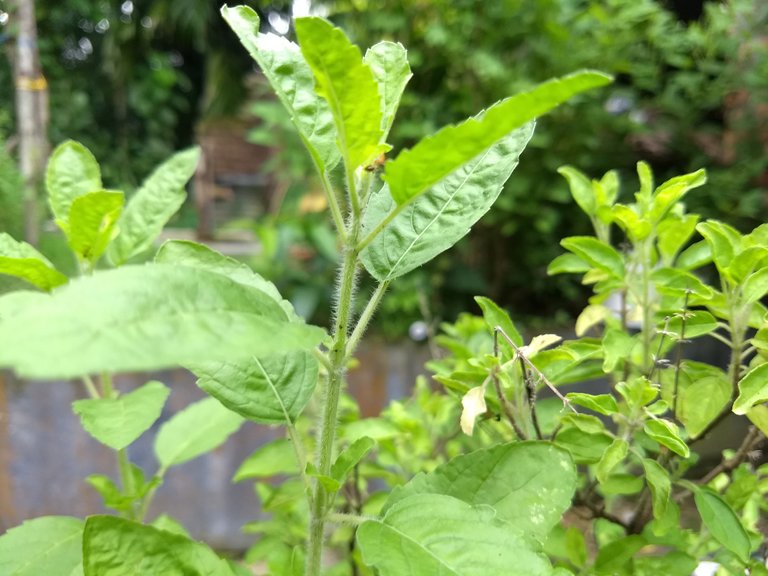Blessed basil is an erect, many-extended subshrub, 30– 60 cm tall with bushy stems. Leaves are green or purple; they are basic, petioled, with a praise, up to 5 cm long cutting edge which more often than not has a somewhat toothed edge; they are emphatically scented and have a decussate phyllotaxy. The purplish blooms are put in close whorls on prolong racemes. The two principle morphotypes developed in India and Nepal are green-leaved (Sri or Lakshmi Tulasi) and purple-leaved (Krishna Tulasi).

Birthplace and dispersion
DNA standardized tags of different biogeographical segregate of Tulsi from the Indian subcontinent are presently accessible. In an extensive scale phylogeographical investigation of this species directed utilizing chloroplast genome arrangements, a gathering of scientists from the Central University of Punjab, Bathinda, have discovered that this plant starts from North Central India. The disclosure may recommend the advancement of tulsi is connected with the social transient examples in the Indian subcontinent.

Medical advantages of Basil herb
Basil leaves hold numerous critical plant-determined synthetic intensifies that are known to have malady forestalling and wellbeing advancing properties.
Basil herb contains numerous polyphenolic flavonoids like orientin and vicenin. These mixes were tried in-vitro research center for their conceivable cancer prevention agent insurance against radiation-prompted lipid peroxidation in mouse liver.
Basil leaves make out of numerous wellbeing profiting fundamental oils, for example, eugenol, citronellol, linalool, citral, limonene, and terpineol. These mixes are known to have mitigating, and antibacterial properties.
The herb is low in calories and contains no cholesterol. Regardless, it is one of the best wellsprings of numerous fundamental supplements, minerals, and vitamins basic to ideal wellbeing.
Basil herb contains especially large amounts of beta-carotene, vitamin-A, cryptoxanthin, lutein, and zeaxanthin. These mixes help to go about as defensive foragers against oxygen-inferred free radicals and receptive oxygen species (ROS) that assume a part in maturing and different ailment forms.
Zea-xanthin, a yellow flavonoid carotenoid compound, is specifically retained into the retinal macula lutea where it found to channel hurtful UV beams from achieving the retina. Studies recommend that basic herbs, natural products, and vegetables that are wealthy in zeaxanthin cell reinforcement help to shield from age-related macular infection, particularly in the more seasoned grown-ups.
100 grams of new herb basil leaves contain astoundingly 5275 mg or 175% of day by day required dosages of vitamin A. Vitamin-An is known to have cancer prevention agent properties and is fundamental for vision. It additionally required for keeping up solid mucosa and skin. Utilization of common nourishments wealthy in vitamin-A has been found to enable the human body to shield from lung and oral hole growths.

Vitamin K in basil is basic for the creation of thickening components in the blood and assumes an indispensable part of the bone reinforcing and mineralization.
Basil herb contains a decent measure of minerals like potassium, manganese, copper, and magnesium. Potassium is an imperative segment of cell and body liquids, which helps control pulse and circulatory strain. Manganese used by the human body as a co-factor for the cancer prevention agent protein, superoxide dismutase.
Basil leaves are a great wellspring of iron. Its new leaves convey 3.17 mg/100 g (around 26% of RDA) of iron. Press, being a part of hemoglobin inside the red platelets, is one of the central determinants of an oxygen-conveying limit of the blood.

good article
Thanks for your priceless comment.
Good article sir, I am following please follow me back
thanks.